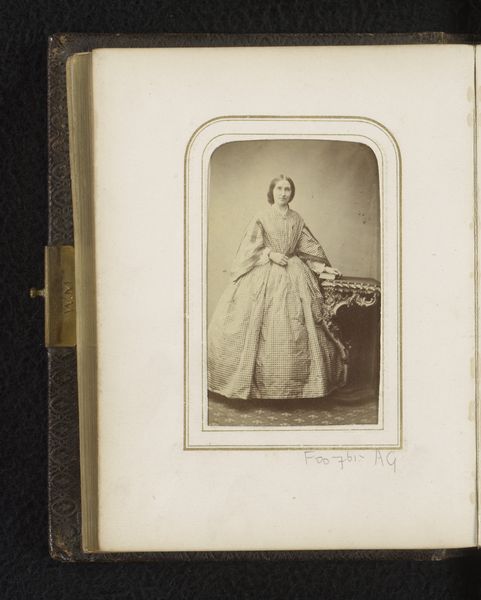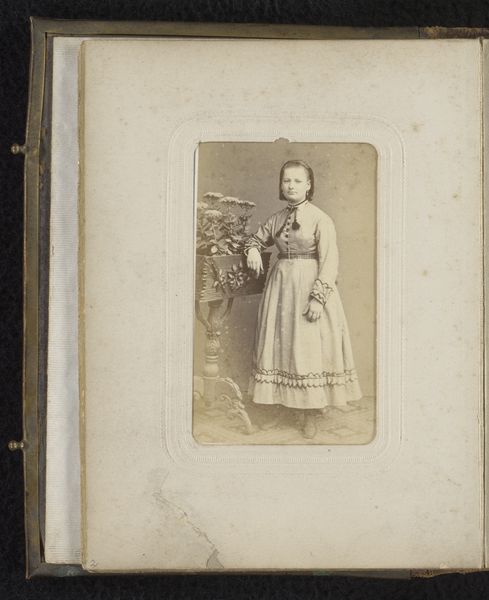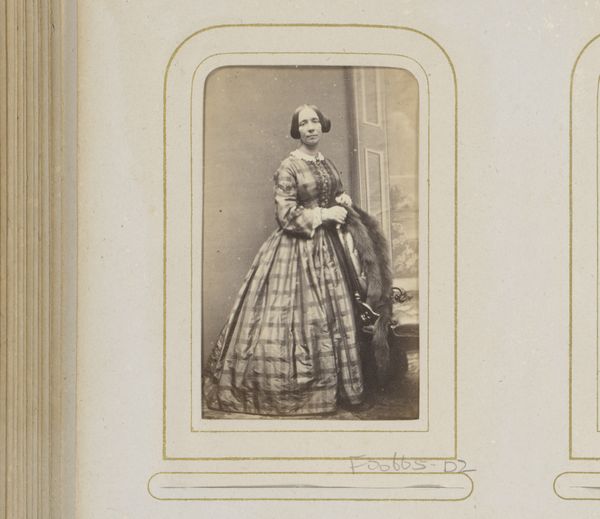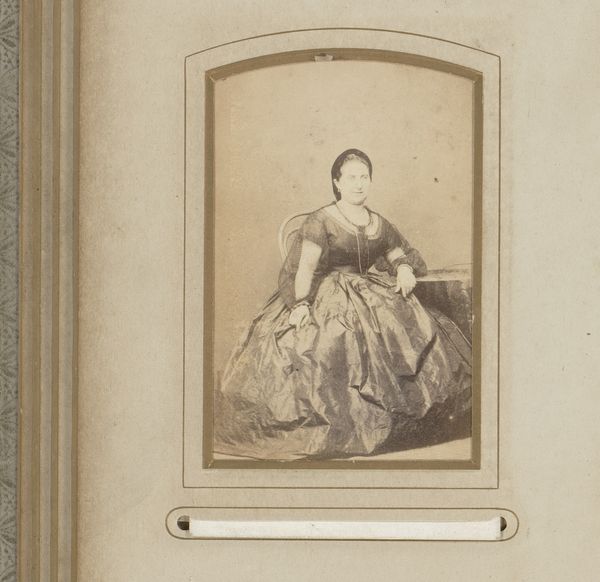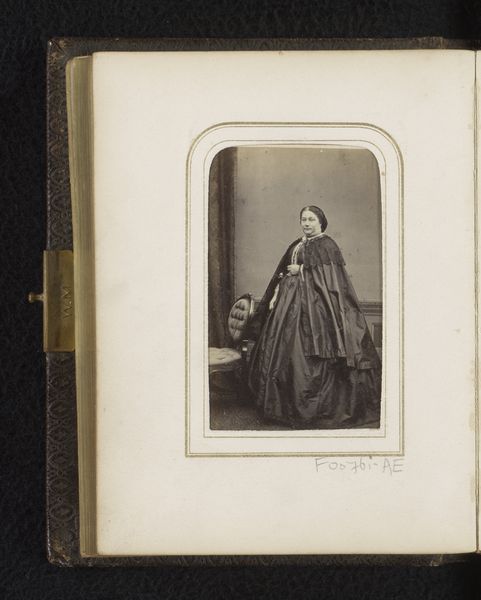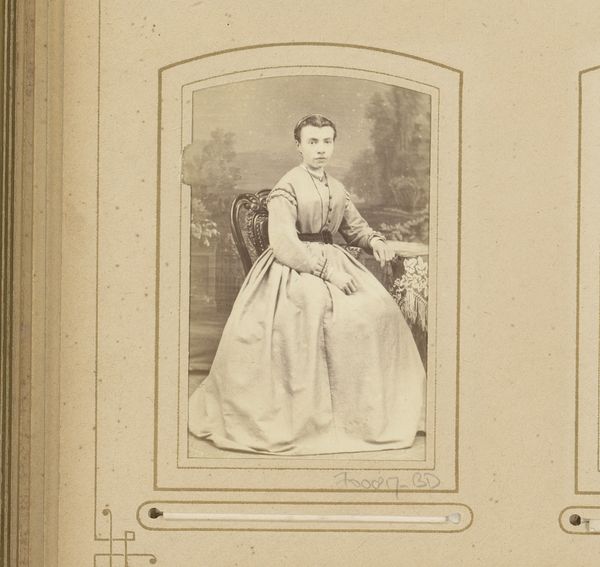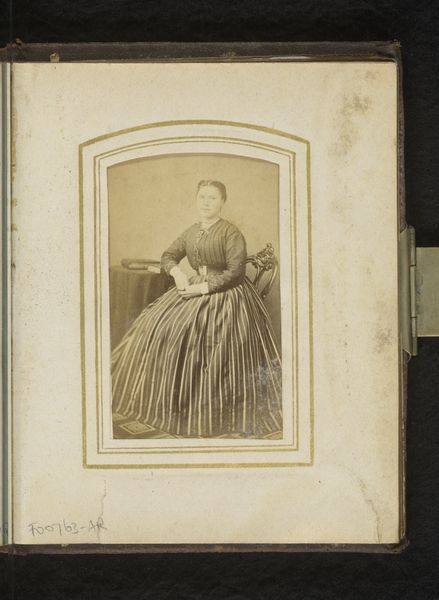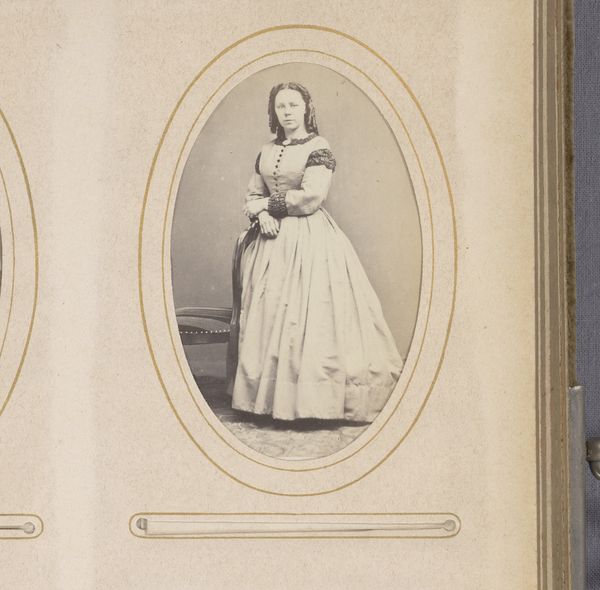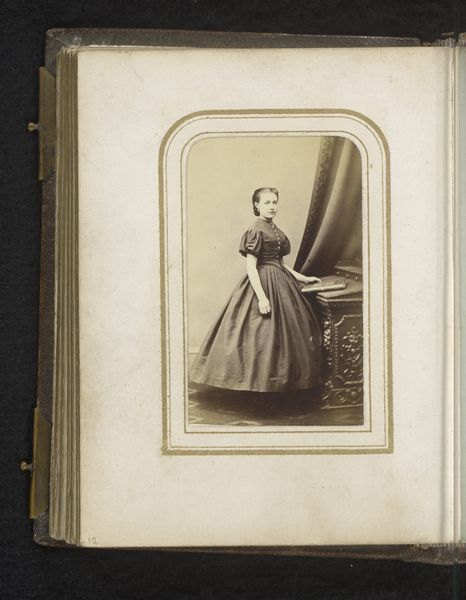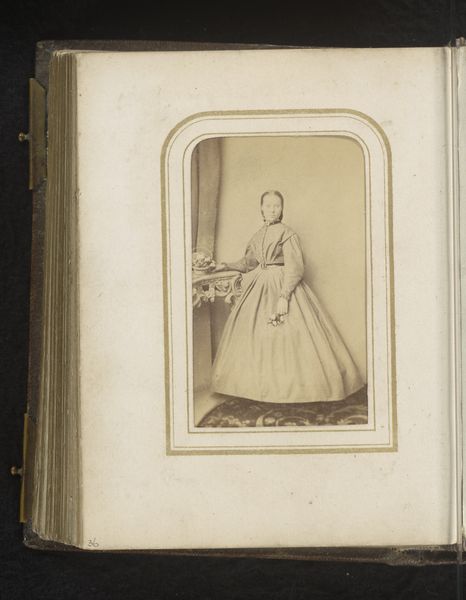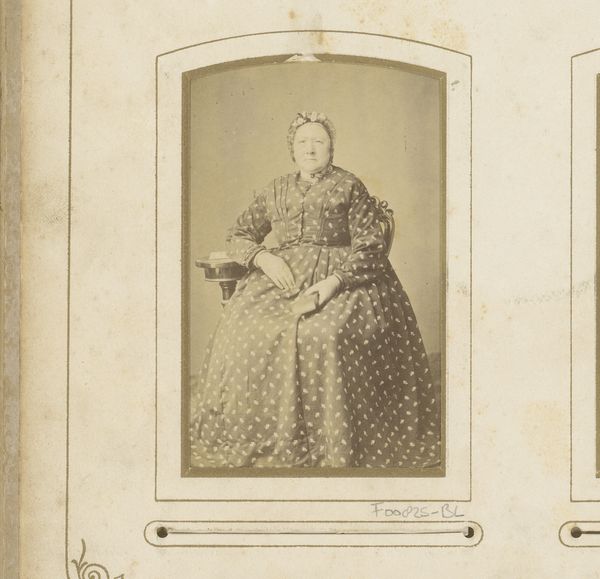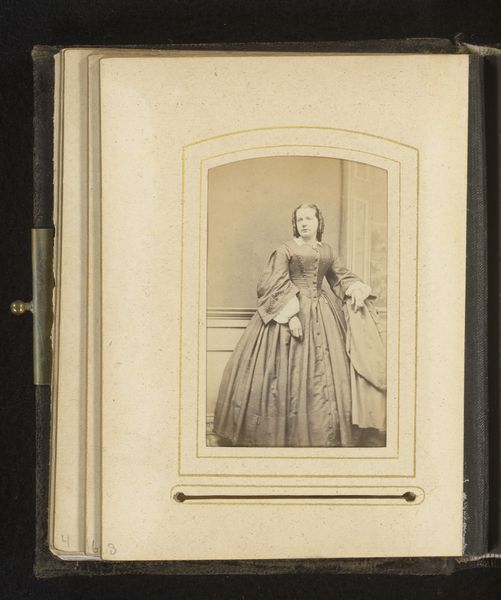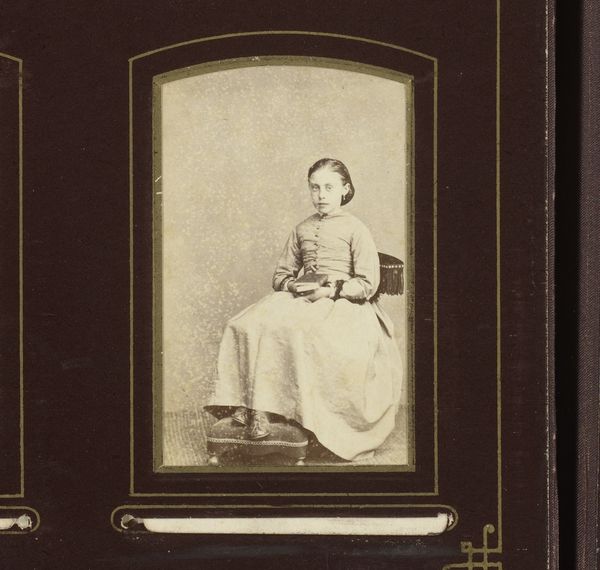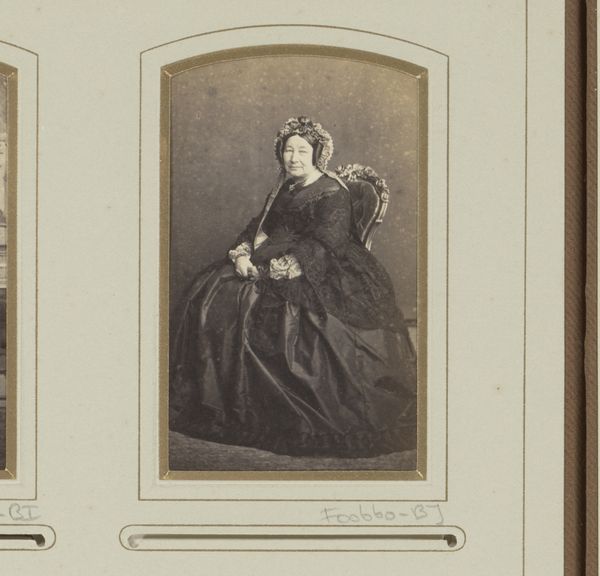
photography
#
portrait
#
photography
#
genre-painting
#
realism
Dimensions: height 82 mm, width 50 mm
Copyright: Rijks Museum: Open Domain
Frederik Caland made this portrait of a woman using photography, a process that was becoming increasingly accessible in the 19th century. Photography, unlike painting or sculpture, is a medium deeply intertwined with industrial production. From the manufacturing of the camera and the photographic plates, to the chemical processes involved in developing the image, it relies on a whole network of industrial activity. Consider the woman's dress. The fabric, the cut, the construction - all speak to the rise of the textile industry and the emergence of ready-to-wear fashion. The very act of commissioning a photograph suggests a certain level of economic means, indicative of a rising middle class with disposable income. Caland's portrait is not just an image of a woman, it’s a record of a specific moment in social and technological history. By considering these aspects, we can move beyond the surface of the image and understand its deeper cultural significance.
Comments
No comments
Be the first to comment and join the conversation on the ultimate creative platform.
